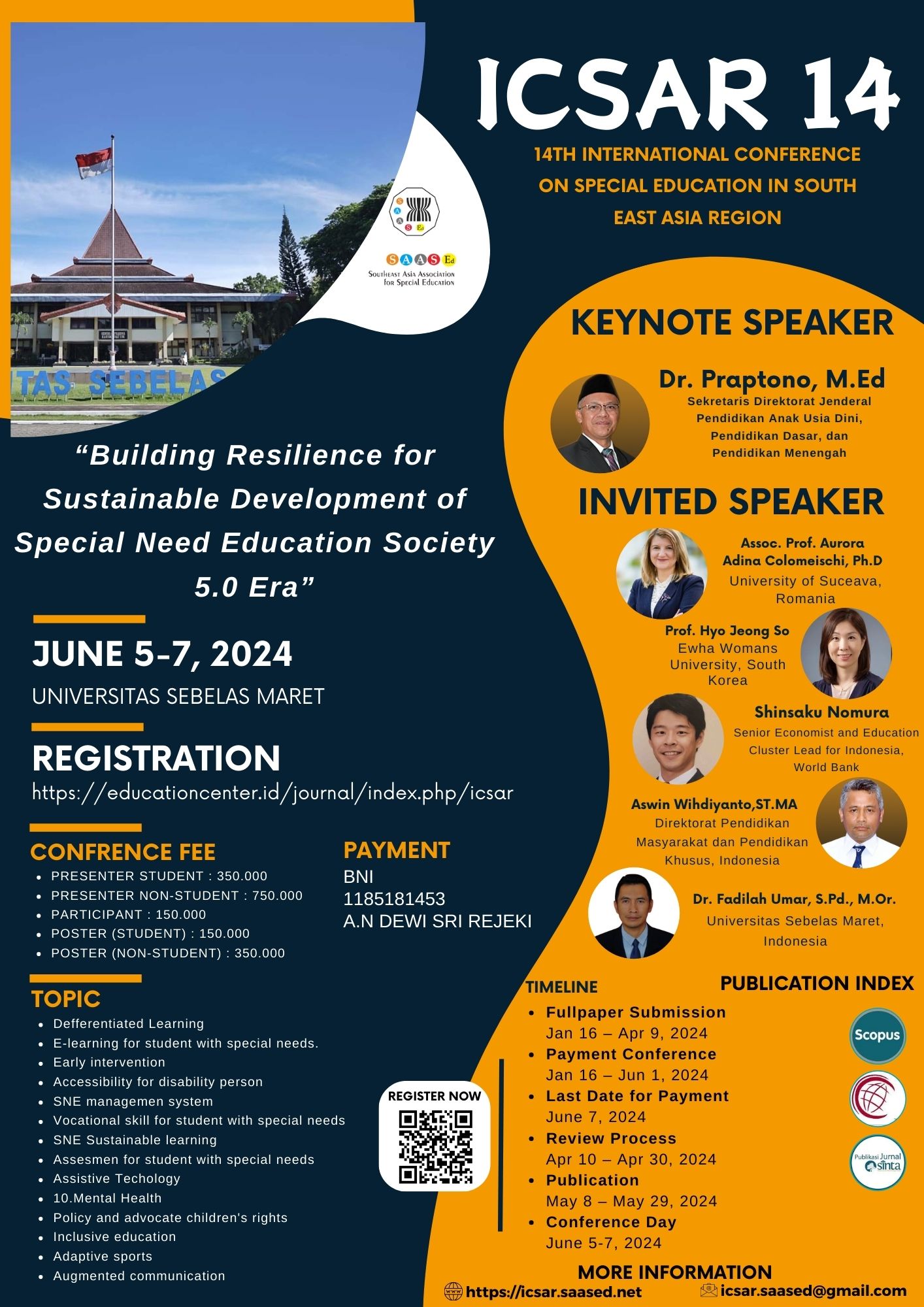Optimizing Assessment Techniques for Students with Diverse Special Needs in Schools
DOI:
https://doi.org/10.57142/picsar.v3i1.571Keywords:
Special Needs Education, Individualized Assessment, Inclusive Practices, Adaptive Learning, Tailored EvaluationAbstract
This study investigates effective assessment techniques for students with diverse special needs in school settings. Background research highlights the importance of individualized assessment strategies to ensure equitable education opportunities. The study aims to identify optimal methods and practices that enhance the evaluation process for these students. The research utilizes a mixed-methods approach, combining qualitative and quantitative data from observations, surveys, and interviews with educators and specialists. Analysis focuses on assessing different techniques' impact on student engagement, academic performance, and adaptive skills. Findings indicate that tailored assessments, incorporating a variety of methods such as adaptive testing and alternative response formats, significantly benefit students with special needs. These techniques enhance understanding and provide actionable insights for personalized education plans. The study concludes that a multifaceted approach to assessing students with special needs is essential for their success. Emphasizing the implementation of individualized assessment practices can lead to more inclusive and effective educational experiences. Readers are encouraged to consider the potential benefits of adapting their assessment methods to better support diverse learning needs.
References
Brookhart, S. M. (2013). How to create and use rubrics for formative assessment and grading. ASCD.
Brown, J., & Perkins, R. (2019). Assessment methods in special education: A guide for educators. Pearson.
Cronbach, L. J. (1957). The two disciplines of scientific psychology. Psychological Bulletin, 58(6), 405–420. https://doi.org/10.1037/h0043943
Bryman, A., & Bell, E. (2015). Business research methods. Oxford University Press.
Cohen, L., & Manion, L. (2000). Research methods in education (5th ed.). Routledge.
Creswell, J. W., & Creswell, J. D. (2018). Research design: Qualitative, quantitative, and mixed methods approaches (5th ed.). SAGE Publications.
Friend, M., & Bursuck, W. D. (2019). Including students with special needs: A practical guide for classroom teachers (8th ed.). Pearson.
Gargiulo, R. M., & Metcalf, D. (2017). Teaching in today’s inclusive classrooms: A universal design for learning approach. Wadsworth.
Guba, E. G., & Lincoln, Y. S. (1994). Competing paradigms in qualitative research. In N. K. Denzin & Y. S. Lincoln (Eds.), Handbook of qualitative research (pp. 105–117). SAGE Publications.
Hattie, J. (2009). Visible learning: A synthesis of over 800 meta-analyses relating to achievement. Routledge.
Hinkle, D. E., Wiersma, W., & Jurs, S. G. (2003). Applied statistics for the behavioral sciences (5th ed.). Houghton Mifflin.
Mertens, D. M. (2020). Research and evaluation in education and psychology: Integrating diversity with quantitative, qualitative, and mixed methods (5th ed.). SAGE Publications.
Smith, D. D., & Richards, S. (2016). The future of children with disabilities and special education. Pearson.
Stiggins, R. J., & Chappuis, J. (2005). Using student-involved classroom assessment to close achievement gaps. Theory Into Practice, 44(1), 11–18. https://doi.org/10.1207/s15430421tip4401_3
Tomlinson, C. A. (2017). How to differentiate instruction in academically diverse classrooms (3rd ed.). ASCD.
Vaughn, S., & Bos, C. S. (2017). Strategies for teaching students with learning and behavior problems (9th ed.). Pearson.
Yin, R. K. (2018). Case study research and applications: Design and methods (6th ed.). SAGE Publications.
Downloads
Published
Versions
- 2024-06-30 (4)
- 2024-06-30 (3)
- 2024-06-18 (2)
- 2024-05-25 (1)
How to Cite
Issue
Section
Categories
License
Copyright (c) 2024 Proceeding of International Conference on Special Education in South East Asia Region

This work is licensed under a Creative Commons Attribution 4.0 International License.





